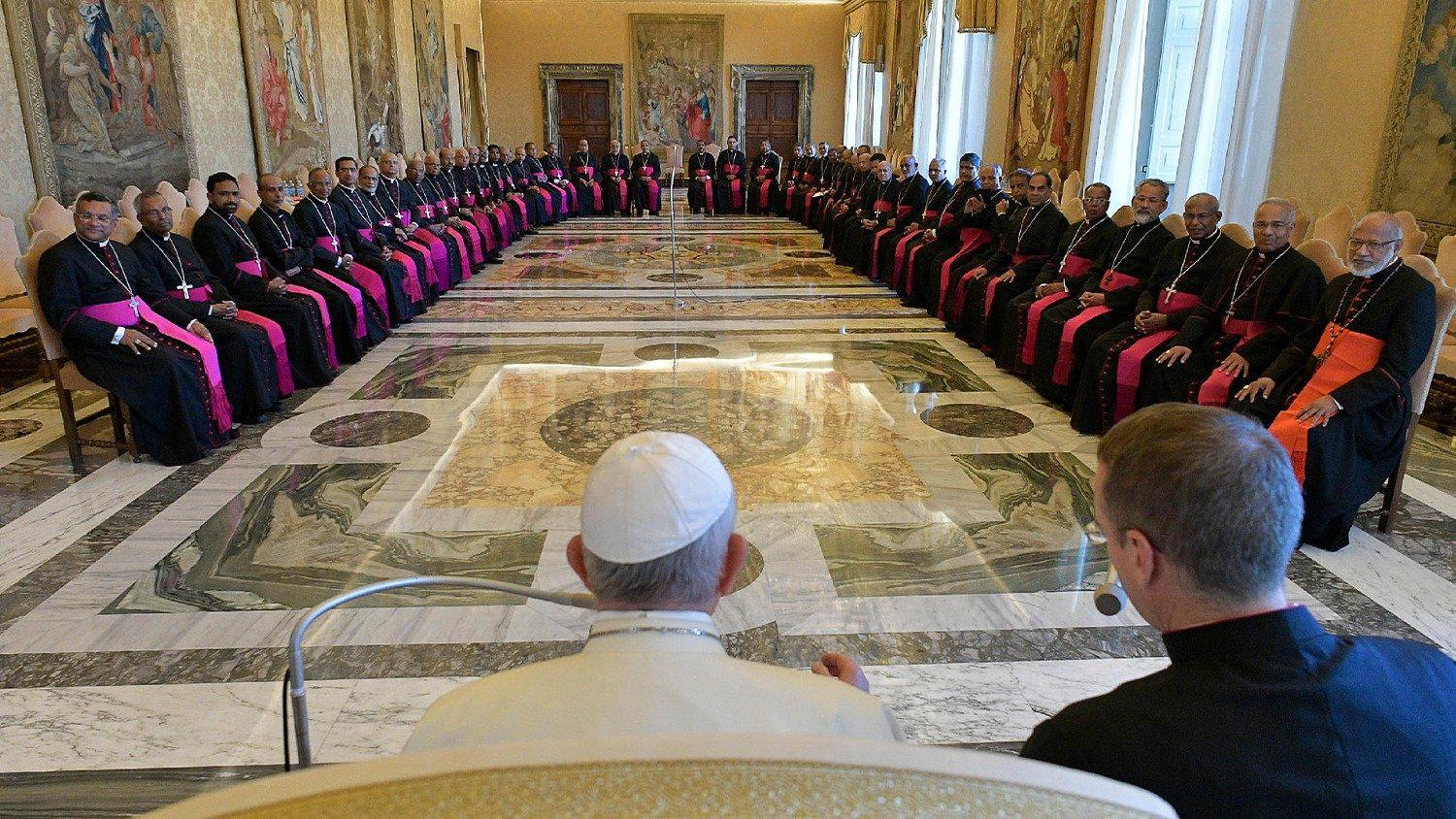MUMBAI, India – After a tentative deal was reached recently to settle a protracted conflict over liturgy and power within the Syro-Malabar church, which became so bitter at points that clergy and laity actually blockaded churches and defied a direct papal edict, one observer has called the settlement the result of “a spontaneous unleashing of people’s power.”
“It was a spontaneous unleashing of people’s power born of an unwavering commitment to a progressive liturgical movement that is in line with the global Church in prayer and collective decision,” said Father Paul Thelakat, a former official spokesperson of the Syro-Malabar Church.
“It elevated them to a state of Christian ethical mind where they were willing to undergo any suffering to achieve a goal that they strongly believed in,” Thelakat said.
At one level, the long-running dispute in the Archdiocese of Ernakulam-Angamly in southwestern India, by far the largest jurisdiction in the Syro-Malabar Church, one of the Eastern churches in communion with Rome, has been about modes of worship.
Five years ago, authorities in the church attempted to impose a uniform mode of the celebrating the Mass, known in their tradition as the Holy Qurbana, which involved the priest facing the altar during the Eucharistic prayers. That brought widespread resistance from priests and laity, who defended the local custom of celebrating with the priest facing the people throughout the celebration.
In another sense, the clash also pivots on power and authority. The dissidents objected to the leadership of Cardinal George Alencherry, who served as Major Archbishop of the Syro-Malabar Church from 2011 to 2023, and who tenure was marked by various scandals and controversies, including accusations of financial improprieties in real estate deals which are currently being considered by Indian courts.
“The decision regarding the uniform mode of celebrating the Mass can also be seen as a punishment meted out to the priests and faithful of the archdiocese for pointing out the unethical aspect of the land sale scam,” Thelakat said.
At one stage, Pope Francis threatened to suspend all priests in Ernakulam-Angamly who refused to celebrate Mass according to the uniform mode, and at another he issued a video message bluntly demanding obedience from the archdiocese. The dissidents, however, continued to press their case, insisting the pope had been deceived by bad information.
“We are sorry for [having] disregarded the video message of Pope Francis, but we did so because we were convinced that the pope gave the message on the basis of a bundle of blatant lies that he was provided,” Thelakat said.
Now, it seems the resistance has gotten most of what it wanted.
According to the new deal, priests will be free to celebrate facing the people every day of the week, with the exception that they must use the uniform mode at least once on Sundays and holidays. New priests will have the same freedom to celebrate facing the people as those already ordained, and disciplinary proceedings against dissident priests will be dropped.
Thelakat laid the lion’s share of the blame for the conflict at Alencherry’s feet.
“The crux of the issue is the unethical and dishonest ways Cardinal Alencherry had taken recourse to both in the matter of the uniform mode of the Mass and the land deals involving Ernakulam-Angamaly Archdiocese,” he said.
“The Major Archbishop manipulated things in such a way that even the Vatican apparently turned a deaf ear to the priests and the faithful of the archdiocese,” Thelakat said.
“Church leaders stubbornly opposed any kind of dialogue with the protesting priests and faithful,” he said. “We were only clamoring for the practical application of synodality, which Pope Francis was aggressively promoting.”
Thelakat styled the uprising as a victory over unjust uses of ecclesiastical authority.
“This resistance was against a display of ecclesiastical authority that was both unchristian and autocratic. We wanted to resist the tendency to divest authority of ethics,” he said. “Honesty and truth must not be left to the whims and fancies of the leaders of the church.”
The election of both a new Major Archbishop, Mar Raphael Thattil, and also a new pope, created a changed context in which a settlement became possible, Thelakat said. He also said that Archbishop Joseph Pamplany, the current administrator of the archdiocese, is someone who believes that “both the progressive and the traditional outlooks can co-exist in the Church.”
In general, Thelakat said, the settlement vindicates the resistance.
“It was the victory of prayer and defence against a type of authority which is not ecclesial,” he said.
“The responsibility for the whole episode lies squarely on the shoulders of a couple of Church leaders who lost Jesus Christ on the way,” Thelakat said. “Devoid of commitment to the gospel values and Christian morals, craze for power became their driving force.”
Although the deal to end the standoff has been approved by both Thattil and Pamplany, there still is concern in some quarters that authorities may eventually withdraw from the agreement or seek to change its terms. It also remains to be seen is some share of the rebel priests may refuse to accept even the fairly minimal requirement of celebrating according to the uniform rite once on Sundays and holidays.
Observers caution, therefore, that it may take some time yet to determine if the civil war in Ernakulam-Angamly is truly over.















